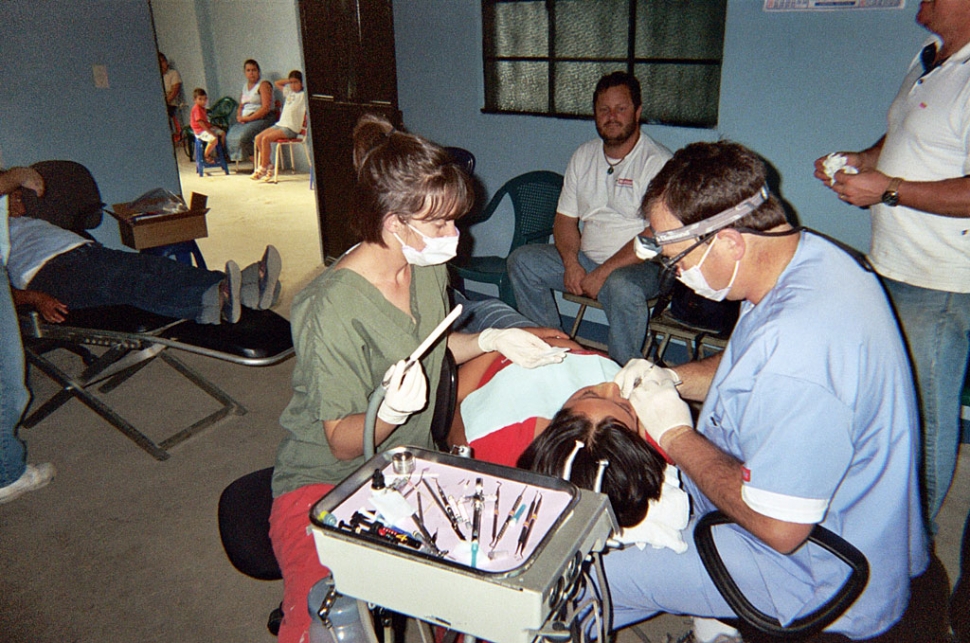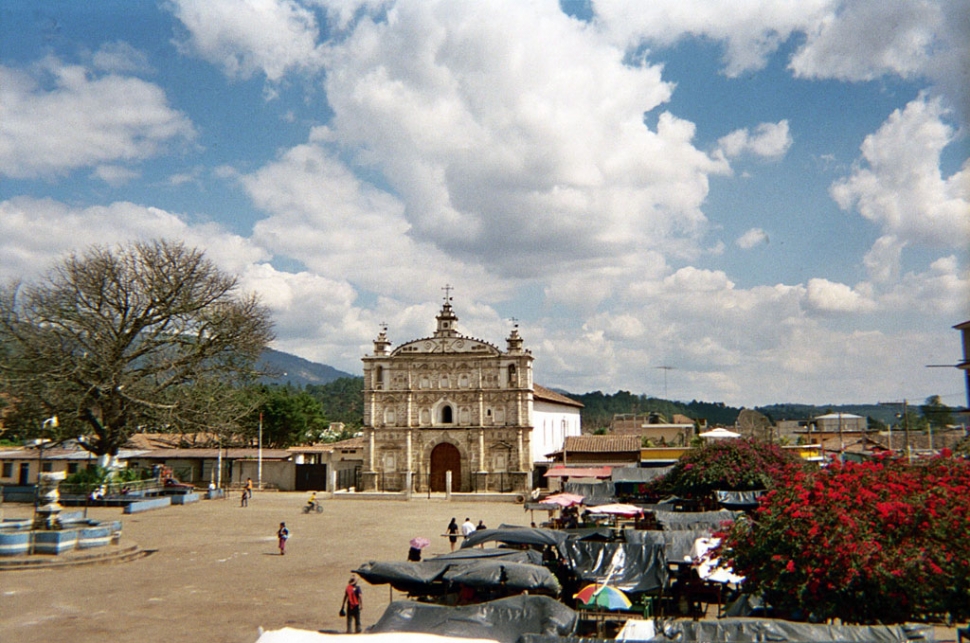|
Fillmore dentist realizes humanitarian adventure Amigos de Guatemala
 Fillmore dentist Dr. Mark Pratt and his daughter Kristyn, a Cal State Northridge student of speech pathology, recently returned from the village of Zacualpa, Guatemala, where they administered urgently needed dental care to its inhabitants and those of the remote Mayan village of Turbala. By Joyce Schifanelli — Wednesday, May 28th, 2008
Part One
  Dr. Mark Pratt, a local dentist and his daughter Kristyn, a Cal State Northridge student of speech pathology, recently returned from a humanitarian adventure. They traveled to the tiny, northern mountain village of Zacualpa, Guatemala, administering urgently needed dental care for its inhabitants and those of the remote Mayan village of Turbala. Father and daughter participated in a two week hands-on-project coordinated by Amigos de Guatemala, a partnership created by Rotary Clubs International to provide quality international service projects in the Quiche district of the impoverished country. Mexico’s southern neighbor, Guatemala is a Central American country of 42,000 square miles and nearly 13,000,000 people. Although heavily laced with pure Indian, more than half of her people are of Spanish, Spanish and Indian, and European descent. There are many dialects in use, nevertheless Spanish is the official language and spoken by the majority. Fillmore dentist realizes humanitarian adventure Amigos de Guatemala Roman Catholic is the predominant religion in Guatemala, a republic since 1889. Upon a trip to the northern highlands of Guatemala, a Rotarian, Bob Hatmaker recognized the intense need of assistance of the region’s inhabitants, especially the Mayan population. He solicited other Rotarians to volunteer their time and funds, and the project Amigos de Guatemala was born. To date, nineteen Rotary Clubs, other service clubs and individuals, participate in the project volunteering time, securing donations of goods and services and raising funds. Twenty-six volunteers, responsible for their own travel expenses, participated during the two-week project, all with the goal to help improve the quality of life in Zacualpa, and the Mayan village of Turbala. The majority of volunteers labored laying brick, hauling fill, mixing cement and pouring concrete to build new school bathrooms, classrooms and a paved path through the rough terrain from Zacualpa to Turbala, location of the only public elementary school. Dr. Pratt, Dr. Rick Holm, from Marina, Ca. and Ms. Pratt set up dental facilities in a garage in Zacualpa. With little indoor plumbing and no sewer system, raw sewerage often floods the streets during the rainy season. Everyone prayed for good weather. From February 3 through February 9, the two dentists, along with assistance from Ms. Pratt, treated their patients’ decayed teeth and other serious dental problems with equipment and donated pharmaceuticals, including pain medications, antibiotics and dental hygienic supplies, carried from the United States. Dr. Pratt and his daughter report treating as many as fifteen patients a day per dentist, performing simple and surgical extractions, fillings, root canals and cleanings. Every child required major dental work and most visitors to the clinic, child or adult, were in varying degrees of pain. None had ever been seen by a professional dentist. Untrained practices and home remedies, administered without antibiotics or anesthesia are a normal course of treatment. Donated dental services exceeded over $40,000 in value. The prevalent lack of dental health is attributed to a mainstay diet of corn, poor oral hygiene and preventative measures. In addition, daily consumption of inexpensive candies and bagfuls of sugarcane-sweetened water is rampant among impoverished children. Villagers, most who earn their living from farming the single corn crop per year, appear twice as old as their years, and besides dental disease, suffer from malaria, yellow fever and other contagious illnesses, contracted when they or others work in the coastal areas harvesting sugarcane. To be continued in next week’s edition. |
